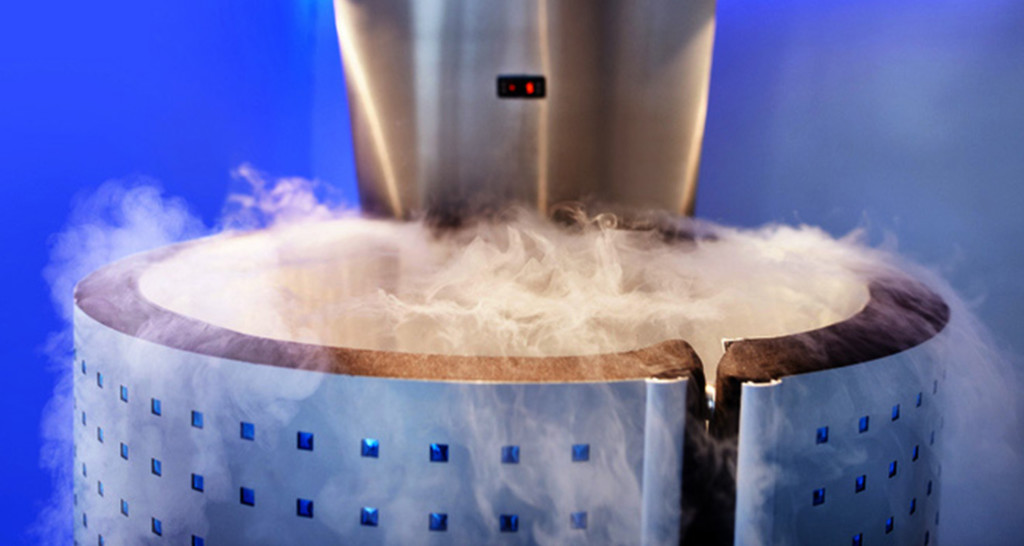
[tldr]
- Burnout happens when you’re under constant stress without a break. Humans aren’t designed for chronic stress; if you never recover from hard work, your performance takes a major hit.
- Burnout causes anxiety, depression, mood swings, decreased productivity, weight gain, hormone imbalances, and more. It can even contribute to autoimmune disease like hypothyroidism or Hashimoto’s Thyroiditis.
- To avoid burnout and manage stress like a pro, schedule recovery time for yourself like you would an important meeting. Use the tips below to speed up recovery and get back to your happy, rested self quicker than you thought possible.
[/tldr]
Burnout is an epidemic. It saps productivity and creativity, and in our modern, always-connected world, it’s easy to fall victim to burnout without realizing it. Maybe things get crazy at work, and your weekends start to fill up with errands, and you’re getting emails from coworkers outside normal hours, and before you know it you haven’t had any real time to yourself in weeks.
Maybe because you’re exhausted your productivity at work starts to dip, and you convince yourself that if you can just push hard for the next week, you can finally rest — but somehow you don’t end up resting.
This is how burnout sneaks up on you. It’s surprisingly easy to get caught up in your day-to-day and not recognize how overworked and under-rested you are.
In my new book, “Game Changers”, I collected wisdom from some of the most successful and skilled people in the world. One of the universal keys to high performance was recovery.
If you want to be the best version of yourself possible, you have to learn to become a professional recovery artist. Don’t push your limits for too long. You’ll end up sabotaging your performance and making yourself miserable. Instead, learn to recognize the symptoms of burnout and start recovering like a pro. This article will cover why burnout happens, how to be on the lookout for it, and how to recover and de-stress.
Download this 30-day plan for more energy and to supercharge your brain and body
What is burnout?
Burnout happens when you’re under chronic stress.
Stress on its own isn’t a problem. Humans evolved to handle short bouts of intense stress — picture running from a predator or hunting for food after a couple days without it.
In fact, stress is often positive. When you work out, your muscles get stronger by adapting to stress. By the same token, learning a new skill or achieving your goals can be stressful, but worthwhile. And even when stress sucks, sometimes it’s necessary — pulling the occasional all-nighter to meet a deadline, for example.
The occasional stressor is fine, as long as you recover from it afterward. Burnout starts when you’re chronically stressed and don’t take the time to recover. When it’s under constant pressure, your body starts to power down the less necessary systems in your body — the ones that control happiness, aging, metabolism, hormone production, and so on. You’re pumping cortisol (the stress hormone) through your body nonstop, which causes damage that leads to burnout.
Burnout symptoms
Common symptoms include[ref url=”https://journals.sagepub.com/doi/pdf/10.1177/014107689809100502″][ref url=”https://apps.who.int/iris/bitstream/handle/10665/44428/9789241500272_eng.pdf;jsessionid=93C8DEFED3A13A33E99AE990CC1DDB17?sequence=1″]:
- Anxiety
- Depression
- Fatigue
- Reduced performance, especially at work
- Weight gain
- Puffiness or inflammation
- Sped-up aging
- Ulcers
- Trouble sleeping
- Cynicism
- Mood swings
- Drug or alcohol use
- Difficulty concentrating
- Decreased productivity
- Headaches
- Muscle aches and muscle loss
Take a moment to think about your life. Do you have any of these symptoms? Have you had them for a while? Are you under more stress than usual?
If so, you want to make time to recover. Burnout from chronic stress can lead you to gain weight[ref url=”https://www.ncbi.nlm.nih.gov/pubmed/22169588″], age faster[ref url=”https://www.ncbi.nlm.nih.gov/pubmed/22169588″], struggle with your sex life[ref url=”https://www.ncbi.nlm.nih.gov/pmc/articles/PMC4199300/”], and develop hormone imbalances that could turn into autoimmune diseases, like hypothyroidism[ref url=”https://www.ncbi.nlm.nih.gov/pubmed/18190880″].
The good news is that you can hack burnout and learn how to get back to your happy, rested self faster than you thought possible.
Related: Here’s Why You’re Always Tired and What to Do About It
How to biohack stress and recover like a pro
Recovering is as important as working. It’s tempting to feel like you don’t have time to recover or you’re lazy for doing so, especially if you’re not as productive as usual and you start falling behind at work. The opposite is true; that’s a sign that you should take some time off to get back to your normal, high-functioning self.
These hacks can help you prioritize resting so you’re more resilient in the long term.
Related: Stress Relief: How to Give Your Brain a Vacation
Schedule recovery time like you’d schedule a meeting
Build time for recovery into your schedule, and protect it the same way you would an important meeting. Start to feel out your ideal ratio of recovery to hard work, and then begin scheduling recovery time in advance — that way you’ll know it’s coming and you’ll stick to it.
Have fun
This is a basic and important part of recovery, and it’s worth mentioning, because a lot of adults don’t do it enough. For me, having fun means spending time with my kids, hiking, cooking, gardening, drinking coffee with my wife, or even biohacking. It’s easy to get caught up in work and family obligations and forget to have fun. It’s up to you to schedule fun time like you’d schedule a meeting.
Get out in nature
This is another basic one that’s surprisingly effective for recovery. Japanese psychiatrists developed forest walking (they call it “shinrin yoku”, or “forest bathing”) in response to a rising suicide rate in burned out Japanese workers. The idea is simple: unplug from everything (no phone or social media) and go for a long walk in nature.
Walking through a forest causes a rapid drop in cortisol levels[ref url=”https://www.ncbi.nlm.nih.gov/pubmed/19568835″]. It also makes you less likely to dwell on the negative aspects of your life and turns off the anxiety-related pathways in your brain[ref url=”http://www.pnas.org/content/112/28/8567.abstract”]. You can read more about forest bathing here, but the idea is simple: when you’re overwhelmed, go out in nature.
Related: This Fractal Video Will Lower Your Stress By 60% In a Matter Of Seconds
Meditate to turn off anxiety
Any time you’re overwhelmed, take five minutes to sit quietly and meditate. It’s not the sexiest biohack, but it really works.
Meditation calms down excess brain activity, decreases cortisol, and increases alpha brain waves, which promote creativity and relaxation[ref url=”https://www.ncbi.nlm.nih.gov/pubmed/23724462″].
Meditation also quiets down your prefrontal cortex, the part of your brain that gets wrapped up in personal problems and excessive planning and anticipation[ref url=”https://www.psychologytoday.com/us/blog/use-your-mind-change-your-brain/201305/is-your-brain-meditation”].
There’s no reason not to meditate. It’s quick and free. Get started with this Bulletproof 30-day meditation challenge (with guided meditations).
Use cryotherapy for rapid stress relief
Your body responds to the cold in a a few cool ways. Cold exposure decreases inflammation, speeds up muscle recovery, releases feel-good endorphins that boost mood, and relieves stress and anxiety[ref url=”https://www.ncbi.nlm.nih.gov/pubmed/23535078″][ref url=”https://www.ncbi.nlm.nih.gov/pmc/articles/PMC2734249/”][ref url=”https://www.ncbi.nlm.nih.gov/pmc/articles/PMC5411446/”]. You have options when it comes to cold therapy. A cold shower is the easiest. An ice bath is even better. The fastest and most effective option is a cryotherapy chamber like the one at Upgrade Labs. It uses liquid nitrogen to give you deep, whole-body cryotherapy in three minutes.
Whatever stress reliever you choose, make sure you prioritize some kind of recovery every week. You’ll avoid burnout and perform much better in the long-term.
Read next: Feeling Stressed Out? The Definitive Guide to Stress Management


















